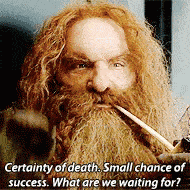I’m sure we’ve all heard the stories by now. Everyone seems to have a friend who knows a coworker that has a brother who invested early in Dogecoin, or Bitcoin, or GameStop, or any other recent speculative investment and made a ton of money in a short amount of time.
While this is very exciting for the person who made the money, it can cause some serious FOMO for those on the outside looking in. So, in the spirit of getting to the truth behind these stories I want to focus on the word “made” in the previous sentence.
You make money in investing by selling an asset at a higher price than what you bought it for. This is called a gain — or a realized gain to be more specific.
If you have an asset that’s increased in value but you’ve yet to sell it, you have what’s called an unrealized gain. Unrealized gains do not count as income and are not taxed because, in essence, they’re imaginary. Until you sell, the value of your investment can and will change.
Many of the stories you hear about people “making” thousands of dollars in these speculative investments are likely referencing their unrealized gains at the highest price. Did they actually cash out and make a profit? Sure, the value of their investment may have increased but they technically haven’t made anything until they’ve sold. As long as they’re still invested, their money is tied up in a fluctuating asset that could be worth significantly less tomorrow.
For example, a few weeks ago an article came out profiling a guy who “made” $1.75 million investing in Dogecoin. At the time of the article, his stake was worth around $2 million and he was committed to not selling. As I’m writing this, the price of Dogecoin has dropped roughly 50% from the peak quoted in the article. Turns out, that guy did not make $2 million.

Knowing when to sell is hard. But let’s say you know someone who did sell at the perfect time. They made a lot of money and got out.
My only question would be, then what? What comes next?
Are they going to take that money and invest in a more sustainable long-term strategy, pay down some debt, or use it to purchase something they need? Probably not. What’s most likely is they’ll just turn around and put it into another speculative investment.

One extreme bet usually leads to more extreme bets in the future. This isn’t a new concept; it’s been happening in the stock market since its inception.
Jim Paul, a trader on the Chicago Mercantile Exchange in the 1980s, made over a million dollars trading soybean futures very early in his career. The only problem was he didn’t really know what he was doing. He got lucky being in the right position at the right time, but when that luck ran out he eventually lost everything he had made.
Paul wrote a book about his experience saying that early success in the markets is one of the worst things that can happen to new traders. He writes:
“The high from ‘being right’ in the market and making all that money is unbelievable. It cannot be duplicated with drugs. You are totally invincible.
Personalizing successes sets people up for disastrous failure. They begin to treat the successes totally as a personal reflection of their abilities rather than the result of capitalizing on a good opportunity, being at the right place at the right time, or even being just plain lucky. They think their mere involvement in an undertaking guarantees success.”
Past performance tends to increase confidence more than ability.

Josh Brown is the CEO of Ritholz Wealth Management and one of my favorite financial influencers. A few months ago he was asked how he felt about everyone making tons of money in meme stocks and he gave a calm, two-word response:
“Just wait.”
He explained that he doesn’t feel FOMO because throughout his career he’s seen investment fads come and go and the people playing these games always fail to keep the money they make. Sadly, they eventually end with nothing.
Now, I hope this post doesn’t come off too negative. If you’ve hit it big with some recent investments, that’s awesome! Don’t waste it. If not, try not to feel too left out. The market gives and it takes away. It’s very efficient in that aspect.
The end goal isn’t to make a quick buck right now; it’s to build lasting wealth over time.
Thanks for reading!

